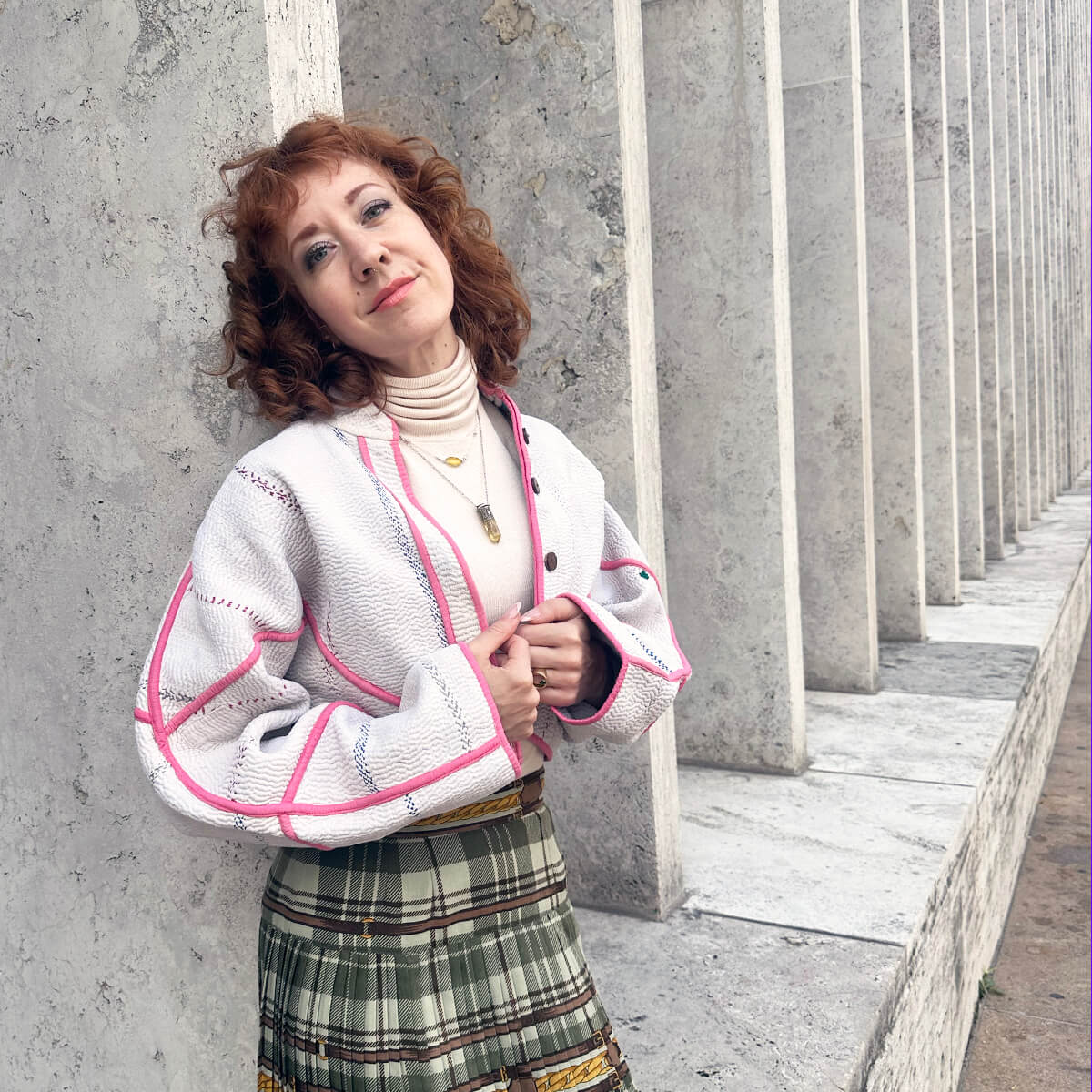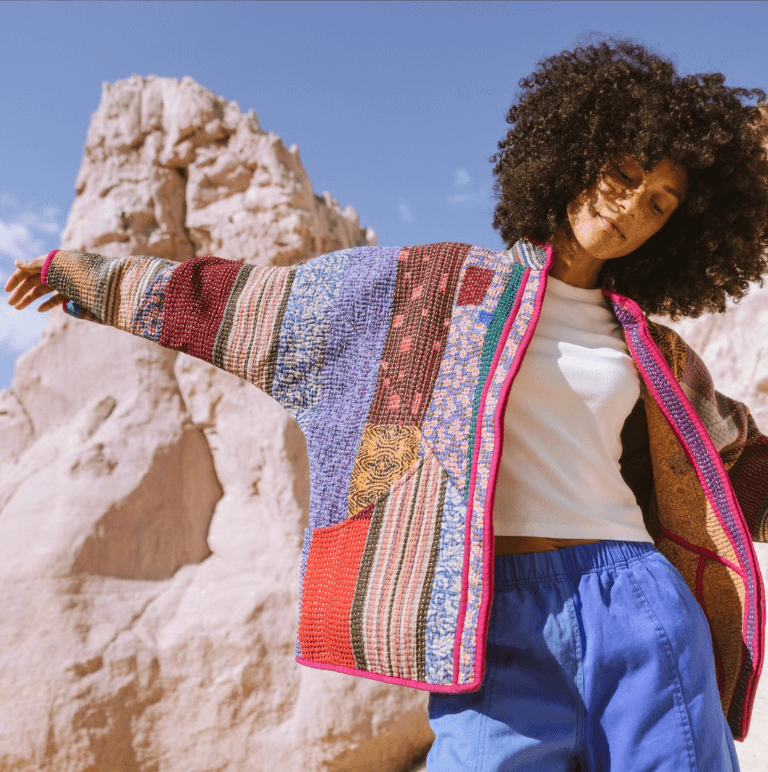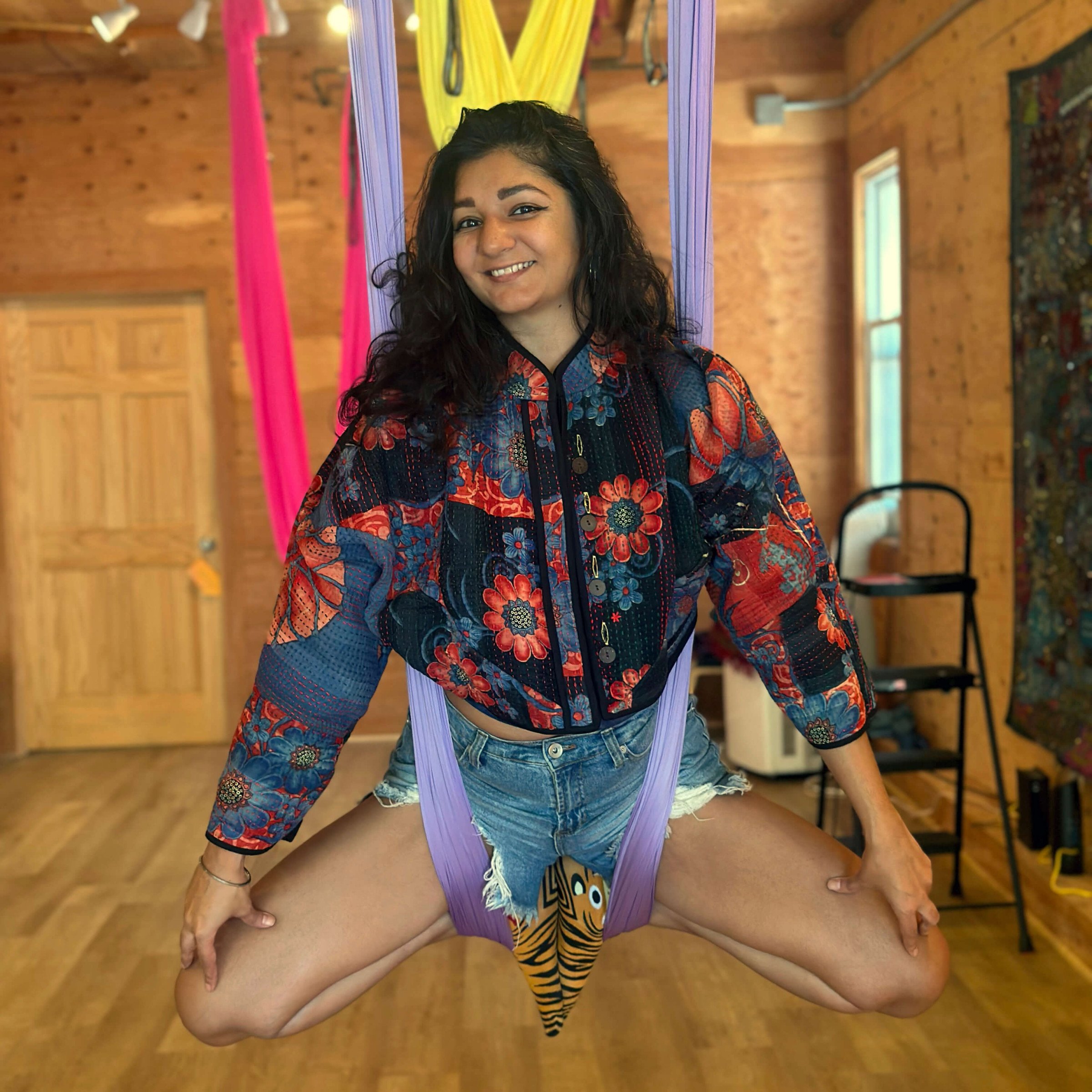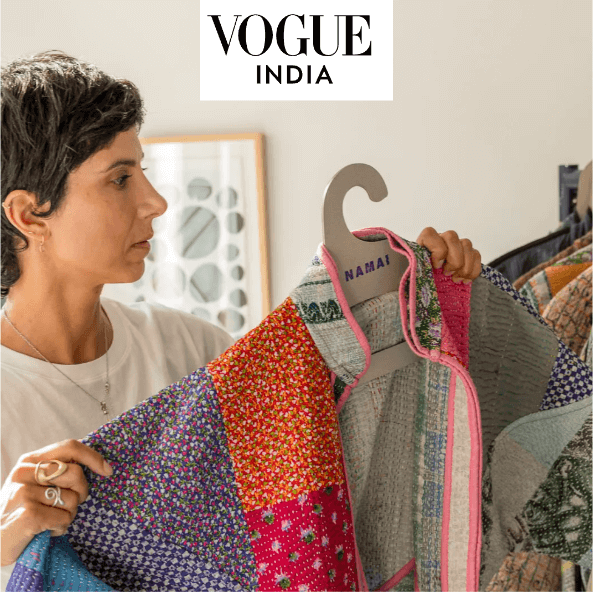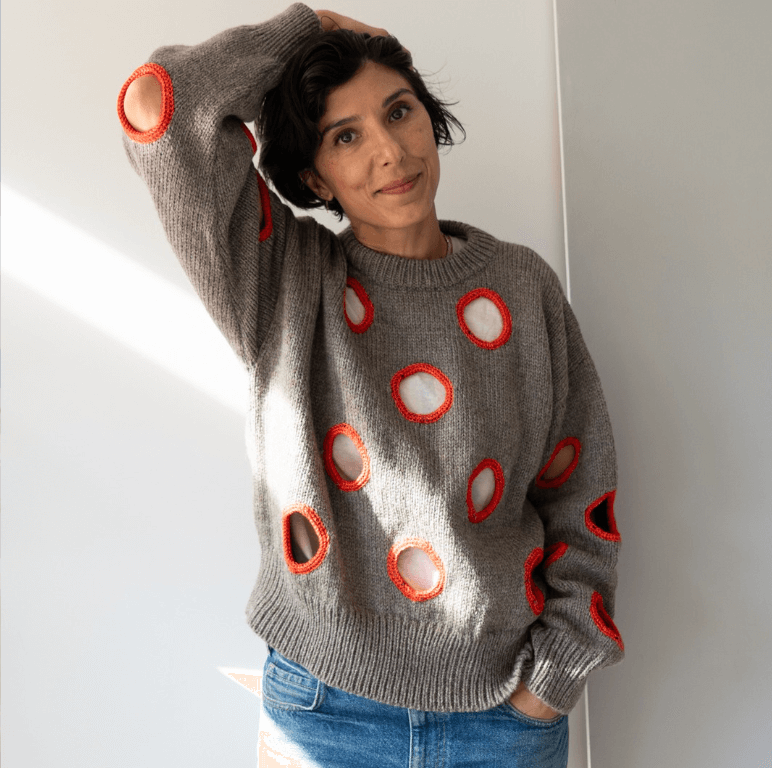Caileigh Scott is a storyteller and movement artist whose creative practices include acting, writing, comedy, and dance. She is also a social impact producer committed to elevating the voices of women and queer folks.
I met across Caileigh virtually through a line dancing Instagram chat! I admired how she talked about her experiences with breast cancer openly. I had just been to my first line dance in the East Village, (and was still in treatment), and couldn’t believe how real I felt after dancing. I wanted to reach out to Caileigh and thank her for talking about her breast cancer experiences. Just seeing her posts helped me to feel less isolated and different. I immediately thought of her when I started working on the October Project.
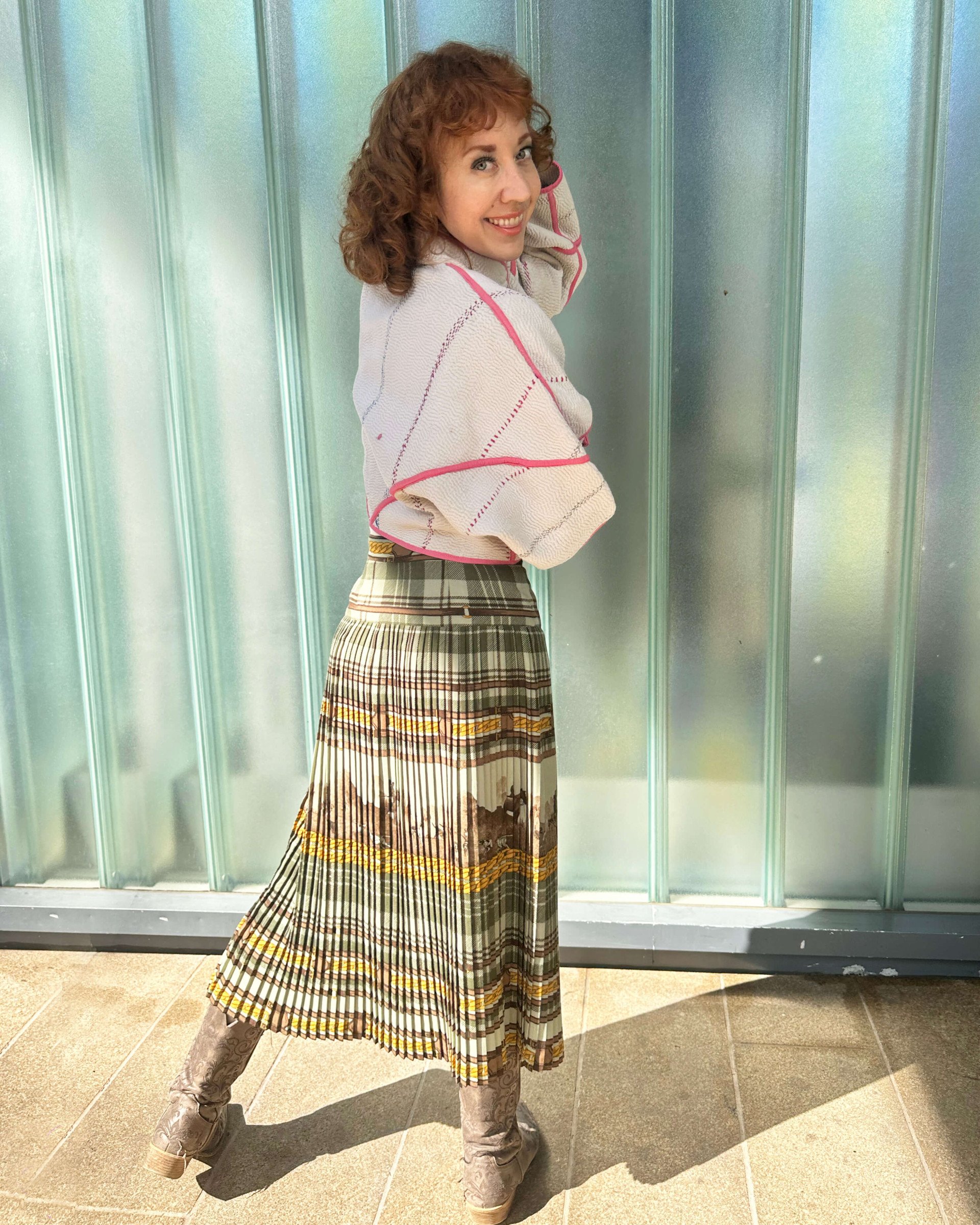
Can you describe how your diagnosis came about?
Caileigh: I'd just returned from a trip to Palm Beach and Wellington where I was sitting on beaches, playing with horses, and just generally living my best life. The day after I returned, I went to an annual check-up with a new PCP and she felt the lump. She wasn't overly concerned but suggested I go for imaging just to make sure, and thus the process began.
How did it feel for you? And how soon did you share your diagnosis with those close to you and on Social Media?
It was very surreal, and of course I was scared and upset, but I moved into acceptance very quickly. After my biopsy, the radiologist spoke with me and in a very kind and empathetic manner, prepared me that he expected the result to be malignant. Once I got home I sat on my bed and cried for awhile before telling myself it was time to get on board. This was happening. There was no more, "maybe it isn't" or "maybe it'll be nothing." It was something. I often cope with hard moments in life by fueling them into action. There wasn't much I could do in terms of setting up a care team until I had a piece of paper stating I had cancer, so I began setting up wig consultations.
I began sharing with those close to me once I had the formal diagnosis. I mostly tried to inject those conversations with humor, because that's how I process, and also because it's a heavy piece of information to dump on people. My vibe was very, "I have cancer but it's okay, here are some jokes."
In terms of social media, I shared my diagnosis widely once I had the early ducks in a row: I'd established my care team at the Dubin Breast Center, thanks to a friend who'd been through breast cancer a few years prior, and I had a mastectomy date on the books.
Did you immediately know what course of treatment you would take?
In 2018 I had a friend who is a bit older than me go through a breast cancer diagnosis, as well as someone around her same age experience a local recurrence. During that time, another friend asked me if I'd ever crossed paths with a woman when I lived in LA she thought I might know, who was peer aged to us (in our 30s) and had recently been diagnosed. While I didn't know her, I did realize we had some mutual friends, and suddenly it felt like it could happen to me. I didn't think it would, but I had a fleeting thought in that moment that I would have a mastectomy if it ever did.
Cut to four years later, I never considered anything other than a mastectomy. My cancer was an early stage HR+ HER2-, so I had surgery first. Upon further testing of the tumor, where they determine your risk of recurrence, a short course of chemotherapy was recommend to reduce that risk.
(And in a beautiful life twist, the person in LA I didn't know in 2018 whose diagnosis made me decide I'd have a mastectomy, is now one of my closest friends, someone who is family to me.)
Were there ways that you connected your daily life as a performer to your diagnosis and treatment?
I turned my journey through treatment into a photography project, collaborating with two close friends. Cancer is very absurd, so it also informed a lot of my writing and comedy. The jokes write themselves.
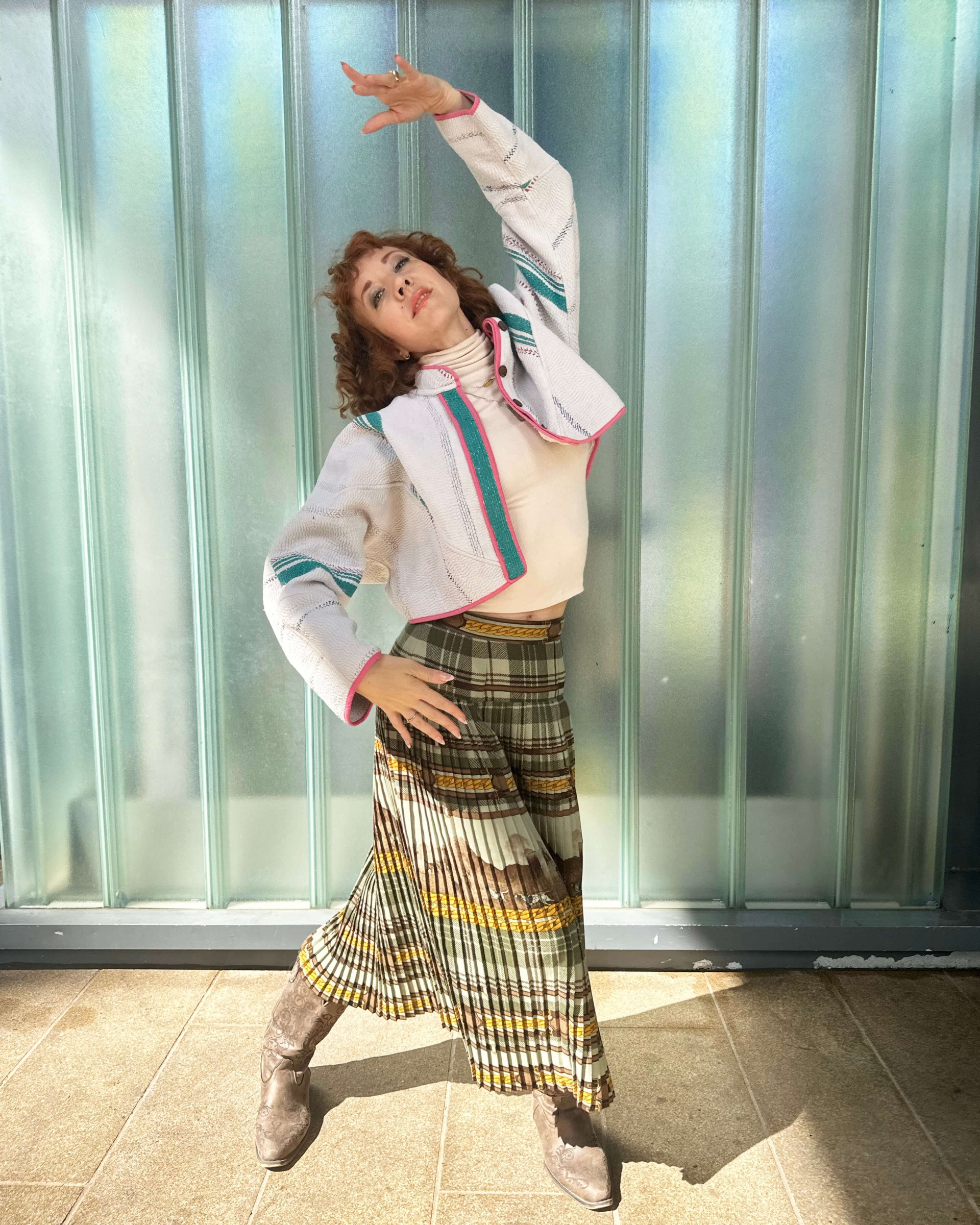
Were there resources or books, advice from friends and family that helped you get through your journey?
I was fortunate to have folks in my life who had been through breast cancer, so I was able to lean on them for advice and almost more importantly, understanding. Thankfully, there was a myriad of support available to me through my care team at Dubin. My aforementioned friend who experienced breast cancer before we knew each other puts together peer-led virtual support groups, so I joined one and those gals are still among my closest friends to this day.
How did work and creativity play a part in your recovery?
My creative pursuits have always been a safe way for me to explore the full range of human emotion, and to find healthy ways to process and express myself.
Cancer leaves a lasting mark on our bodies, and who we chatted on IG I appreciated that you said going to line dancing had been a way for you to reconnect with who you were. How was that for you? Were there other things that helped you feel like yourself?
Dancing in general has been amazing. My fellow survivor friend I've mentioned is a choreographer and dance teacher, so I first dipped my toe back into dance in her classes, who are for anyone but it felt particularly safe to me to be in that space as I relearned my body, and those classes have remained a huge part of my life. And separately, with line dancing, you enter almost a fugue-like state, where you can stop thinking and just let the energy move you. Exploring different styles of dance, and getting back into what I did before - riding horses, skiing, tennis, rock climbing, archery - has been really important to me.
Has there been a change in your sense of perspective since going through treatment?
Massively. I'm not sure if I'll ever be able to properly articulate it, but I like who I am better on the other side of treatment. I would never have chosen cancer, of course, but I don't think I'd go back and change it if I could. I'm much more regulated, grounded, and centered.
How did BC affect ideas of friendship and community for you?
It's interesting because there are people who surprise you in both ways - those you thought would be very present and supportive who disappear, and folks who were acquaintances who show up in beautiful and surprising ways. The experience redefined for me in some ways what is important to me in friendships, and as someone who tends to be fiercely independent, helped me see the beauty of community.
What advice would you give someone who is newly diagnosed?
Still find the joy. Still live your life. You'll have good days and bad days during treatment, but on the good days, live. Live because you are alive.
What organisations played an important part for you?
I received care at the Dubin Breast Center in New York City, which I cannot recommend enough. I'm also involved with The Pink Agenda, which activates young professionals to fund breast cancer research.
Are there any charities that you refer people to donate to?
I have a resources page on the website for my photography project which has links to organizations for early detection, treatment and care, support, and more. You can find it here.

